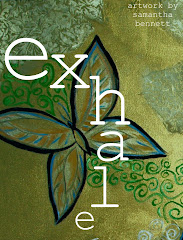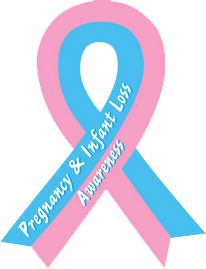The fourth grader acts out. The teacher admonishes, but thinks – Oh, he has such a hard life. His parents…his peers…his siblings… I can hardy blame him for the way he behaves. And she doesn’t, for now. But where is the responsibility line: fifth grade, the day he steals for the first time, or worse? At what point will the world start to judge this young boy for his actions as opposed to pitying him because of the environment he was born in?
***
The child psychologist sat across from me. He was kind, clear and direct with his words. I liked him for this. Why waste time when there is a solution to be discussed? A small desk, littered with papers that compiled her file separated us.
“Mmm…” he muttered, “so, and I’m just guessing here, that you were nervous during your pregnancy with her.” I nodded, mentally confirming the vast understatement he had dropped on the table. Neurotic would be a more accurate term. Obsessed, terrified, and borderline personality disorder made strong showings as well, not just for the thirty-eight weeks she grew inside me, but as we talked of creating her. They lingered, tailing me even as we left the hospital with a live baby, even as we walked through our front door. Even as we pretended to know how to parent a child after burying one into the ground.
“And this?” He held up a photocopy of the recent newspaper article documenting Emma’s death and our subsequent community actions in her memory eight years later. “I read through it. You have been through a lot. So has she. It seems a lot for a child to make sense of too, doesn’t it?”
Eyebrows raised I did not answer immediately. Is he saying what I think he’s saying? Is he equating her worries and social anxieties with the fact that we talk about Emma? That we make her part of our family and don’t hold back the sisterly connection.
“Having a sister in heaven is surely not typical.” I said, my tone more even and calculated than minutes before; a non-answer to be sure. As abstract as the concept is, it is our family’s norm and our children will continue to develop their understanding of her existence with every additional year of their growth.
***
I sat clicking through my blogroll, trying to catch up. A title caught my eye, Rainer Maria Rilke, a poet. The author spoke of her instant attachment to his poetry and the revelation that he was the child after a neo-natal loss. But it was her description of what this implied that struck me speechless. She wrote, “Rainer was his mother's rainbow baby. It all makes sense, he is someone who has been shaped by grief, raised by a mother who was profoundly impacted by child loss.”
Is that the fate our living children are left to sort out? It must be for I am, without a doubt, as profoundly impacted by my daughter’s death as the word allows. And so, I am left to wonder if my children are not that different from the fourth grade boy. If every action and reaction of theirs holds some measure of my loss reflecting back at me. I’m raising them day by day, year by year, paralleled through every stage of my grief. So how can they emerge untouched by it, unshaped by my emotions? They see the melancholic joy in my face when they mention her. They feel my arms around them at her headstone every year. They feel the shift in my ways during late August and early September. They see the tears that slide down my cheeks. “Are you ok Mama?” they ask, but the answer is far too abstract and complex for explanation.
“There is so much guilt in parenting after loss” I recently said to a fellow mourner with a half smile. I am starting to make sense of its origin, yet in doing so I am beginning to fear it will never leave me. I am fearful it will implant itself in the hearts of my girls and hold tight there too, an irreconcilable and foundationless emotion they must carry for the rest of their days.
After the death of my child, I was forever changed. And for so long after that my grief was exclusive. It was mine to feel, mine to manage, mine to fight or give in to. Tangentially others were affected, yet the gaping hole existed in my heart.
The troubled young boy, the child psychologist, Rainer Maria Rilke, and Anarcharist Mom all point to the same conclusion. Even before their conception, my children were too. Just by existing in our home, they are being shaped by both grief and love.
How does grief shape your life?
Wednesday, February 4, 2009
Subscribe to:
Post Comments (Atom)




.jpg)


















10 comments:
I can't even begin to answer this question - nearly 5 months out it feels like grief IS my life. I know it will not always be this way, but that's how it is now.
Oh Cara, what a tough issue to wrestle with. As you know, we haven't had our rainbow baby yet, so I can't speak from experience here. I can imagine, though, that losing our boys will shape (has shaped) everything about our future, including the way we'll care for and raise our child or children. I can't imagine not telling a future son or daughter about their gaurdian angels, and I hope knowing about Adam, Joey and Paul might actually bring them some comfort. But who knows...I can't fully fathom how we'll navigate those waters until we're in them.
I often wonder about this, about how my future children will be affected. I wonder if it's better to shelter them, but then I think there's no way I could because I talk about Hannah so frequently. I just don't want them to feel that they are not good enough and can't make me happy. Because I am sure they will, but I will always miss my first little girl!
The babies I've lost have made me appreciate the ones I have so much more.
Does that make Monkey my rainbow baby?
I wrestle with this each day of his life. He was born into this grief and has never known anything else. Monkey is shy and reserved and though it may be his personality, how much of it is my overprotectiveness and grief? Monkey will always know his twin and I want him to feel the bond of twins without feeling sad or the pressure of living for two. I have been reading about surviving multiples, but the information is so very limited.
All I know, is that as Mama's we love all of our children and do our very best to mesh these two worlds.
Like Sarah said, the grief IS my life now. At not even 6 months, and with no new pregnancy yet (I'm seriously a broken record) I don't know how it could be any other way.
I think grief is part of the gift of life, it can be the wellspring of compassion and caring. It is part of the human experience and I know of no generation untouched by this loss of a child.
Grief, like loss, struggle, success, joy are part of our journey, my journey. However much we shield our child, it is there. We do our best, give them a safe place to share, laugh, and love. Also, clean laundry on occasion.
It's still early for me--coming up on one year soon--so I can't predict how grief will shape my life and the lives of future children...but I hope that I will love harder and laugh louder. I can't let the fallout from Baker's death be all negative, for that would be too much to bear. Already, I can tell that he has brought Chris and I closer, and that is a good thing.
I do not even know yet because everytime I think I am moving forward I feel I get pushed back. I really wish I had a better answer but right now I just don't.
LOVE THE NEW LOOK!
I'm coming up on one year ago that I lost my baby (via miscarriage). The grief still gets to me on an almost daily basis. I don't know how it will affect my future children, but I know that, as Dalene said, it has brought my husband and I closer, because we share that loss in our hearts. I can only hope that I will love my future children with all the love in my heart.
Post a Comment